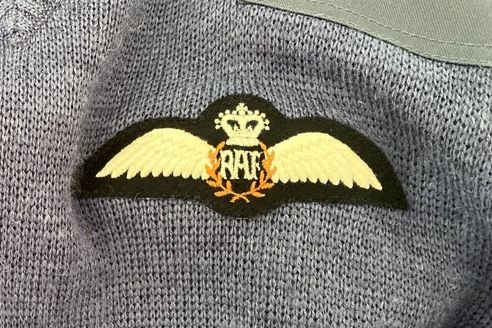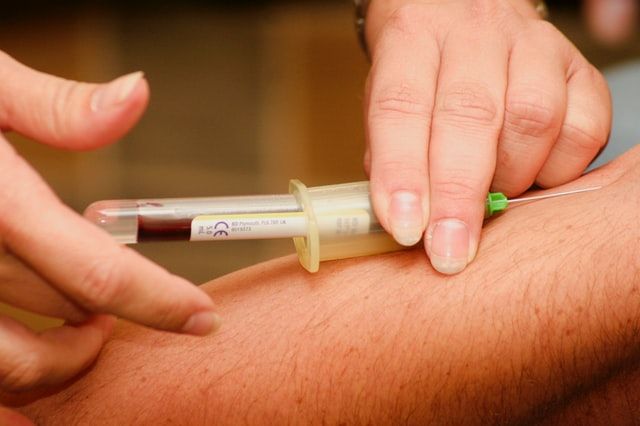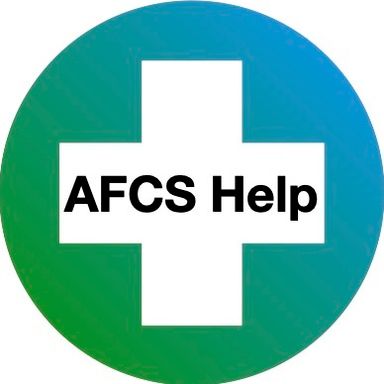Applying to the AFCS / Making a claim under the AFCS
Part 3
Here are some of the issues and difficulties involved in making a claim to the AFCS for a mental injury

Diagnosis of mental injury by consultant grade psychiatrist or clinical psychologist
Although it wasn't in the original version of the law in the 2011 Order, a subsequent amendment requires that:
- "mental disorders must be diagnosed by a clinical psychologist or psychiatrist at consultant grade."
- See the notes to Table 3, Part I of Schedule 3 to the 2011 Order
This is unlikely to change.
I've referred to the issue of Veterans UK Medical Advisers not being shrinks let alone consultant grade ones on my Veterans UK page.
Why a consultant?
According to the BMA, "consultants are senior doctors that have completed full medical training in a specialised area of medicine and are listed on the GMC’s specialist register. They have clinical responsibilities and administrative responsibilities in managing [staff grade, associate specialist and specialty doctors] and junior doctors."
Please bear in mind that many doctors at what are known as staff grade, associate specialist and specialty doctor have made a positive choice to step into one of these roles from a traditional consultant training pathway. This could be for reasons such as a stable location and the chance to work regular hours in a chosen specialty. It often provides a better work-life balance.
Photo by Alicia Christin Gerald on Unsplash

Approximate parallels to military rank & experience
We all know people who have chosen their work or work-life balance over promotion in the military. In the pilot branch of the RAF, the higher you're promoted, the less you fly. If all you want to do is fly before retirement age, you top out at Sqn Ldr (Major equivalent) or more usually at Flight Lieutenant (Captain - Army, not Navy, that would make you a full Colonel.)
If I want an opinion on someone's operational helicopter flying skill, do I ask:
- the 46 year old Sqn Ldr (Maj) at the helicopter flying school, who commands a basic helicopter flying training squadron, is an exceptional pilot, but hasn't been on ops for years and now flies infrequently;
- the 42 year old GP Capt (Col) who is Station Commander of an operational helicopter station, is a decorated pilot and instructor on helicopters, but rarely flies due to the demands of command;
- the 28 year old Flt Lt (Capt) who is a tactics instructor on fast jets and has deployed on ops 4 times in the last 2 years; or
- the 35 year old Flt Lt who is a helicopter instructor, has chosen to remain as a pilot instead of being promoted, and has deployed on ops over 10 times in 8 years?
Just because you don't have a senior title, doesn't mean you're not amazing at your relevant speciality. An Associate Specialist Psychiatrist might be the person the Consultants run their ideas past, but Veterans UK will not accept the diagnoses of the former (fair enough, the law says they can't) and they will belittle their opinion and reports (not fair enough, pretty disgusting actually).

Consequences of insisting on a consultant
By strictly requiring a diagnosis made by a consultant psychiatrist or clinical psychologist, the rules massively narrow the options for getting that diagnosis. If you're being treated by a consultant already, you're fine. This is unlikely though.
You'll first probably ask your therapist or doctor who originally diagnosed you if they have a consultant leading their team, and if that person would be kind enough to review you for your claim. They don't have to do this, as it is outside the work they're required to do for your treatment. My VTILS diagnosing psychiatrist's boss reviewed and approved the written report about me, but this was apparently insufficient for Veterans UK. My therapist from CTS then asked their boss if they would see me. They kindly gave me an appointment and prepared a report (the one lost by Veterans UK.) This is extra work that they do not need to do, and adds a burden on the NHS.
If that NHS CTS consultant could not assess me, I would have needed a private assessment. Because that assessment would have to have been done by a consultant, it would have been much more expensive, as consultants charge a lot more for private work. Some consultant psychiatrists charge £250 per hour +VAT. If you have to get such a report, you don't get that money back if an award is made. You have to pay that up front to the shrink, and you may not even be successful with your claim. Does this still sound like a "process itself... designed not to be onerous"? (JSP 765 Para 2.2)
Does it bollocks.
Photo by National Cancer Institute on Unsplash

Veterans UK undermining of consultants they insist on
Even after all of that, Veterans UK will qualify and diminish the comments in the consultant's report in ways that are not published, official qualifiers in the Order or JSP.
The Veterans UK Medical Adviser said in my Reconsideration (see the Appeals page) that the consultant psychologist confirming the diagnosis for my claim was not my treating psychologist, that the report was based on the reports of the two non-consultant clinicians who had seen me, and my own self-report at ‘interview’.
Paragraph 2.143 of Admiral the Lord Boyce’s AFCS Review in 2010 states: “Psychological illness is largely a matter of self-report from the patient or report from other close contacts (such as family members, employers or colleagues)... other than when there is objective biological evidence.”
There’s no blood test for PTSD, self-reporting is most of what there is.
What the Veterans UK medical advisers don't acknowledge is that even though the consultant was not my treating psychologist they, like the two others who saw me beforehand, assessed me in person, and formed an opinion not only on my self-reporting but my presentation, manner, behaviour and reactions, as they are trained to do. The Veterans UK medical advisers have never assessed me in person. They have reviewed the records only. They wouldn't be qualified to assess me in person because they're not shrinks. Despite trumpeting themselves as being trained in medico-legal determinations and the AFCS legislation, they clearly don't understand it.
This also increases the burden on the applicant / claimant and further restricts access to the Scheme. Not only must your diagnosis be that of a consultant, a requirement under statute, but Veterans UK Medical Advisers will add that the diagnosing consultant's opinion only holds any weight if they are treating you, not just assessing you, that their report must be lengthy, and they should not refer to the opinions of other clinicians involved or the self-reporting of the claimant.
It is genuinely unbelievable. I cannot believe it.
Photo by Hush Naidoo Jade Photography on Unsplash

